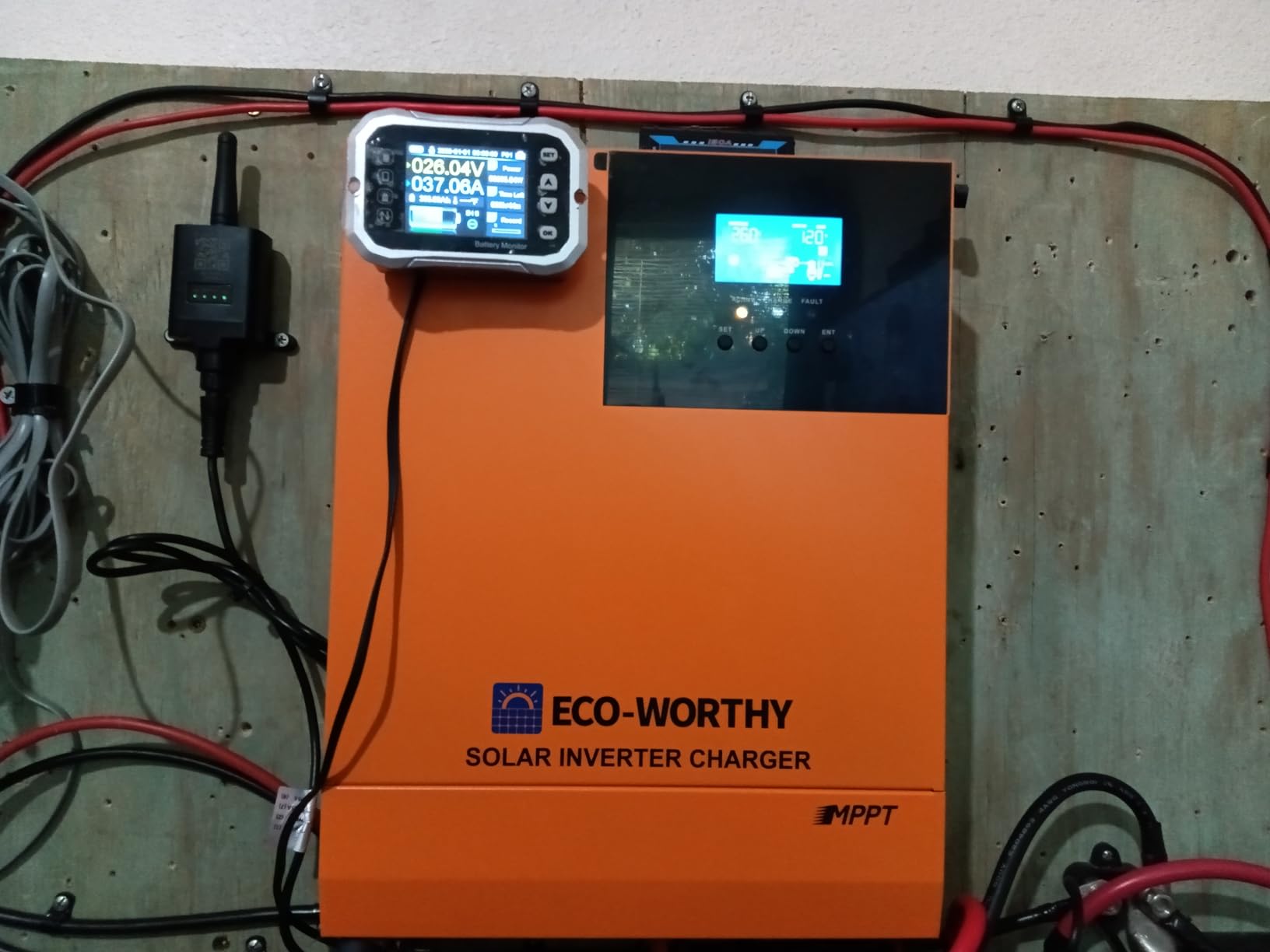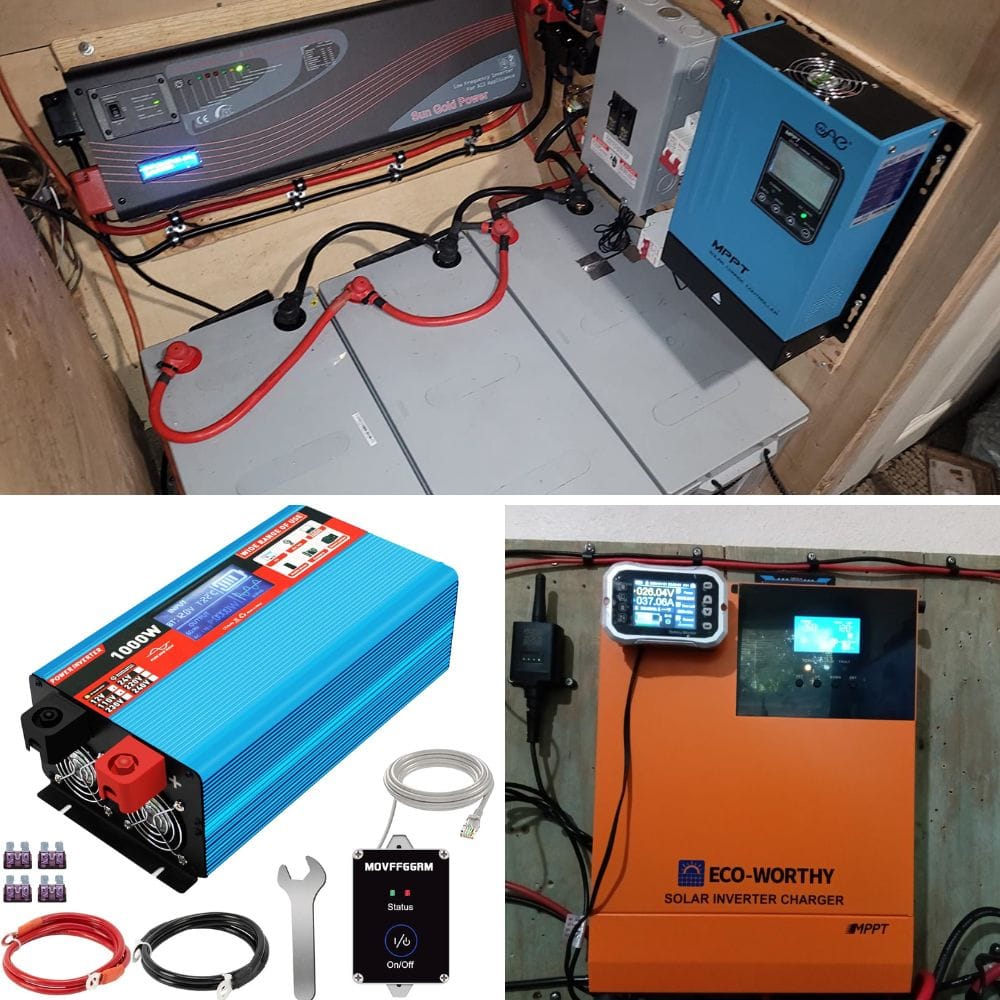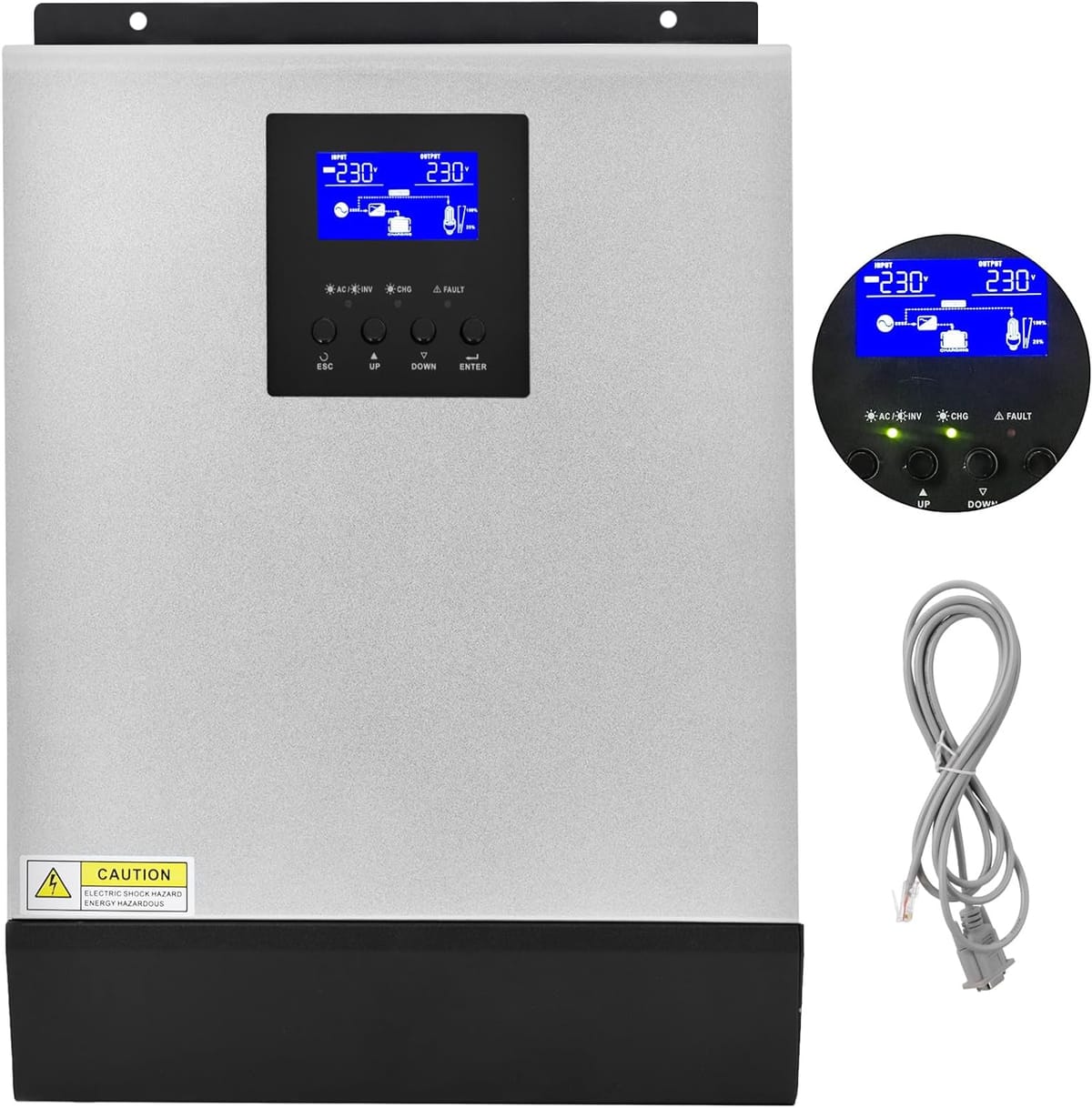Key Takeaways:
- Hybrid inverters offer more flexibility and efficiency compared to normal inverters.
- Normal inverters are simpler and more cost-effective for basic solar energy systems.
- Hybrid inverters can store excess solar energy and provide backup power during outages.
Introduction to Inverters
Inverters are the unsung heroes of solar energy systems, converting DC power generated by solar panels into AC power that can be used by household appliances within a solar system. However, not all inverters are created equal. There are two main types: hybrid inverters and normal inverters. Understanding the difference between a hybrid inverter and a normal inverter can help you make an informed decision for your solar power needs.
What is a Normal Inverter?
A normal inverter, also known as a standard solar inverter, is designed to convert DC electricity from solar panels into AC electricity. This type of inverter is commonly used in grid-tied solar power systems. It ensures that the electricity generated by solar panels can be used to power household appliances or fed back into the utility grid.
Normal inverters are straightforward and cost-effective, making them a popular choice for many homeowners. However, they cannot store excess energy generated by solar panels, which means any surplus power is sent back to the grid. This can be a drawback if you experience frequent power outages or want to maximize your energy efficiency.
What is a Hybrid Inverter?

A hybrid solar inverter combines the functionalities of a normal inverter with additional features like energy storage capabilities. This type of inverter can store excess solar energy in batteries, providing backup power during grid outages. Hybrid inverters are ideal for those looking to optimize energy usage and reduce electricity bills.
Hybrid solar inverters are more versatile and can operate independently from the grid, making them suitable for off-grid solar systems. They also offer advanced features like maximum power point tracking (MPPT) to ensure optimal energy efficiency. While they are more expensive than normal inverters, the benefits often outweigh the costs.
Key Differences Between Hybrid and Normal Inverters
The primary difference between a hybrid inverter and a normal inverter lies in its functionality. Normal inverters are limited to converting DC power to AC power, while hybrid inverters offer additional features like energy storage and backup power. This makes hybrid inverters more versatile and efficient.
Another key difference is cost. Normal inverters are generally cheaper and easier to install, making them a good option for basic solar energy systems. On the other hand, hybrid inverters are more expensive but offer greater flexibility and energy efficiency, making them a better long-term investment.

Energy Storage Capabilities
One of the key features of hybrid inverters is their capability to store excess energy generated by solar panels. This stored energy can be used during power outages or when solar production is low. Normal inverters lack this capability, which means any excess electricity is sent back to the grid.
Energy storage capabilities make hybrid inverters ideal for areas with unreliable grid power. They provide a reliable backup power source, ensuring that your home remains powered even during grid outages. This feature alone can make a significant difference in your energy consumption and electricity bills.
Backup Power During Outages
Hybrid inverters shine when it comes to providing backup power during outages. They can seamlessly switch to battery power, ensuring that your home remains powered even when the grid is down. This is particularly useful in areas prone to frequent power outages.
Normal inverters, on the other hand, do not offer this feature. If the grid goes down, so does your solar power system. This can be a major drawback if you rely heavily on solar energy for your daily needs. Hybrid inverters provide peace of mind by ensuring a continuous power supply.
Cost Considerations
When comparing the cost of a hybrid inverter vs a normal inverter, it's important to consider both the initial investment and long-term savings. Normal inverters are generally cheaper and easier to install, making them a cost-effective option for basic solar systems.
Hybrid inverters, while more expensive upfront, offer long-term savings through increased energy efficiency and reduced electricity bills. The ability to store excess energy and provide backup power can also save you money in the long run. It's a classic case of "you get what you pay for."
Installation and Maintenance
Installing a normal inverter is relatively straightforward and can be done by most certified solar installers. Maintenance is also minimal, making them a hassle-free option for homeowners. However, they do require a connection to the utility grid to function properly.
Hybrid inverters, on the other hand, require a more complex installation process due to their additional features. They also require regular maintenance to ensure optimal performance. While this may seem like a drawback, the benefits of increased energy efficiency and backup power often outweigh the extra effort.
Energy Efficiency
Hybrid inverters are designed to enhance energy efficiency by optimizing the use of solar energy. They can store excess power generated during the day and use it during peak hours or when solar production is low. This ensures that you get the most out of your solar power system.
Normal inverters, while efficient at converting DC to AC power, do not offer the same level of energy optimization. Any excess electricity generated is sent back to the grid, which can result in wasted energy. Hybrid inverters provide a more efficient solution by storing and utilizing excess energy.
Flexibility and Versatility
Hybrid inverters offer greater flexibility and versatility compared to normal inverters. They can operate in both grid-tied and off-grid modes, making them suitable for a wide range of applications. This makes them an ideal choice for those looking to maximize their solar energy usage.
Normal inverters are limited to grid-tied systems and do not offer the same level of versatility. While they are a good option for basic solar systems, they may not be suitable for those looking for a more flexible and efficient solution.
Grid Independence
One of the key advantages of hybrid inverters is their ability to operate independently from the grid. This makes them ideal for off-grid solar systems and areas with unreliable grid power. They can store excess energy and provide backup power, ensuring a continuous power supply.
Normal inverters, on the other hand, rely on a connection to the utility grid to function properly. This can be a limitation if you experience frequent power outages or want to operate independently from the grid. Hybrid inverters offer a more reliable and flexible solution.
Advanced Features
Hybrid inverters come with a range of advanced features designed to optimize energy usage and efficiency. These include maximum power point tracking (MPPT), which ensures that your solar panels operate at their optimal efficiency. They also offer advanced monitoring and control capabilities.
Normal inverters, while effective at converting DC to AC power, do not offer the same level of advanced features. This can limit their efficiency and flexibility. Hybrid inverters provide a more advanced and efficient solution for those looking to maximize their solar energy usage.
Environmental Impact
Hybrid inverters can help reduce your environmental impact by optimizing energy usage and reducing reliance on the grid. By storing excess energy and providing backup power, they ensure that you get the most out of your solar power system. This can result in lower electricity bills and a smaller carbon footprint.
Normal inverters, while still environmentally friendly, do not offer the same level of energy optimization. Any excess electricity generated is sent back to the grid, which can result in wasted energy. Hybrid inverters provide a more sustainable solution by maximizing the use of solar energy.
Battery Storage Systems
Hybrid inverters are designed to work seamlessly with battery storage systems, allowing you to store excess energy generated by your solar panels. A battery inverter works alongside the hybrid inverter to enable energy storage and improve power delivery during grid outages, enhancing the overall efficiency and resilience of solar energy systems. This stored energy can be used during power outages or when solar production is low, ensuring a continuous power supply.
Normal inverters do not offer this capability, which means any excess energy generated is sent back to the grid. This can be a limitation if you want to maximize your energy efficiency and reduce your reliance on the grid. Hybrid inverters provide a more efficient and flexible solution.
Off-Grid Capabilities
Hybrid inverters are ideal for off-grid solar systems, as they can operate independently from the grid. They can store excess energy and provide backup power, ensuring a continuous power supply even in remote areas. This makes them a popular choice for off-grid applications.
Normal inverters, on the other hand, rely on a connection to the utility grid to function properly. This can be a limitation if you want to operate independently from the grid. Hybrid inverters offer a more reliable and flexible solution for off-grid solar systems.
Integration with Other Renewable Energy Sources
Hybrid inverters can be integrated with other renewable energy sources, such as wind turbines, to provide a more comprehensive and efficient energy solution. This allows you to maximize your energy production and reduce your reliance on the grid.
Normal inverters, while effective at converting DC to AC power, do not offer the same level of integration with other renewable energy sources. This can limit their efficiency and flexibility. Hybrid inverters provide a more advanced and efficient solution for those looking to maximize their renewable energy usage.


What is the main difference between a hybrid inverter and a normal inverter?
The main difference lies in their functionality. A normal inverter converts DC power from solar panels into AC power for household use. A hybrid inverter, on the other hand, combines this functionality with additional features like energy storage and backup power, making it more versatile and efficient.
Are hybrid inverters more expensive than normal inverters?
Yes, hybrid inverters are generally more expensive than normal inverters due to their advanced features and capabilities. However, they offer long-term savings through increased energy efficiency and reduced electricity bills, making them a worthwhile investment.
Can hybrid inverters operate independently from the grid?
Yes, hybrid inverters can operate independently from the grid, making them ideal for off-grid solar systems and areas with unreliable grid power. They can store excess energy and provide backup power, ensuring a continuous power supply.

Understanding the difference between a hybrid inverter and a normal inverter is crucial for making an informed decision for your solar power needs. While normal inverters are cost-effective and straightforward, hybrid inverters offer greater flexibility, efficiency, and energy storage capabilities. Whether you're looking to reduce your electricity bills, provide backup power during outages, or operate independently from the grid, hybrid inverters offer a more versatile and efficient solution.











